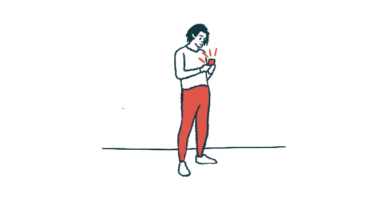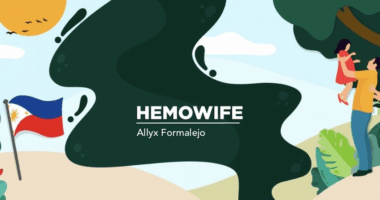Lived experience grants expertise in the battlefield of bleeding disorders
NBDF: Bleeding disorder community members now 'lived experience experts'

I marvel when I watch reporters on the news who can deliver their reports in the midst of gunshots, riots, battles, and air raids, events that many in the U.S. might find difficult to comprehend. These brave men and women seem always prepared to hop on a plane to anywhere in the world to report on what they’re seeing and experiencing.
Those who read this column may know that well. It just looks a little different.
The National Bleeding Disorders Foundation (NBDF; formerly the National Hemophilia Foundation) has worked to address the most critical needs of the bleeding disorder community, and, as part of its deliberations, now refers to bleeding disorder community members as “lived experience experts” (LEEs).
As a mother of two sons with severe hemophilia A with inhibitors, I agree that those who live with a bleeding disorder and their families are experts. It’s an expertise that develops over time, similar to the way a parent comes to learn the needs of their child before that child is able to communicate them. It’s just that in the context of a chronic condition, that carer role is magnified.
When my sons were babies, I knew every bump, bruise, and rash on their little bodies. I had to be the one to identify issues related to their health because my sons were too little to relate their hurt to me.
From caregiver to LEE
The people who live with or care for someone with a chronic condition are most likely not clinicians. Sometimes a parent may have clinical knowledge, but taking a clinical approach to caring for one’s own child isn’t easy. Seeing your own child limp from joint damage, cry in pain from an active bleed, or need to use a mobility device such as a wheelchair or walker is heart-wrenching.
When the effects of a chronic condition begin to surface in a child, the parent-caregiver is the first responder. They are called on to know what is best for their child in the immediate moment. Before long, they can learn the disorder’s complexities and become involved in conversations about what approach to take for their child’s care.
Parents of children with a bleeding disorder serve many roles in the world, but, before long, taking on the role of caregiver to an ill child can mean having expertise in that role, becoming an LEE.
Having a child with a serious medical condition is not a role anyone chooses, but it becomes a profound and transformative part of their lives. LEEs may not wear white coats or hold medical degrees, but their knowledge, understanding, and advocacy for their child’s well-being are unparalleled. The journey from caregiver to LEE is filled with countless challenges and heartaches. Being willing and able to make that journey is a testament to the resilience, love, and dedication of these parents and caregivers. Through their unwavering commitment to learning, adapting, and seeking the best care possible for their children, we witness the power of love.
Note: Hemophilia News Today is strictly a news and information website about the disease. It does not provide medical advice, diagnosis, or treatment. This content is not intended to be a substitute for professional medical advice, diagnosis, or treatment. Always seek the advice of your physician or another qualified health provider with any questions you may have regarding a medical condition. Never disregard professional medical advice or delay in seeking it because of something you have read on this website. The opinions expressed in this column are not those of Hemophilia News Today or its parent company, Bionews, and are intended to spark discussion about issues pertaining to hemophilia.








Leave a comment
Fill in the required fields to post. Your email address will not be published.